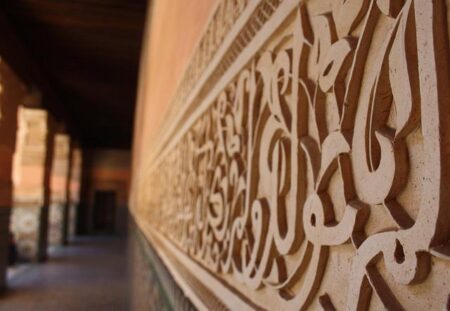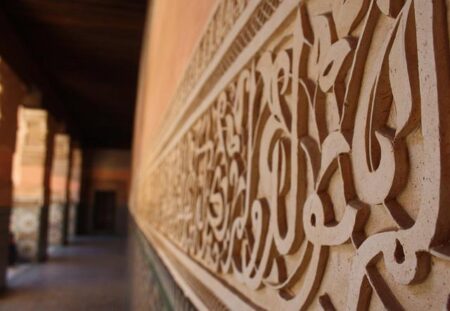Delayed Trial Amplifies Political Strife in Tunisia
The highly anticipated trial of several leading Tunisian opposition figures, initially slated to begin this week, has been postponed, intensifying concerns about the nation’s fragile political environment. This deferment occurs amid mounting demands for judicial transparency and equitable treatment in a context widely viewed as politically charged. The accused opposition leaders assert that the charges against them are fabricated to suppress dissenting voices and weaken political opposition.
As Tunisia continues its pursuit of democratic consolidation following the 2011 revolution, this delay adds complexity to an already volatile political scene. Media outlets and human rights defenders remain vigilant, closely tracking developments that fuel ongoing debates about justice, governance integrity, and the future role of opposition parties within Tunisia’s evolving democracy.
Judicial Challenges Reflect Deepening Political Divides
The postponement has sparked widespread unease among analysts who interpret it as symptomatic not only of procedural inefficiencies but also of escalating friction between ruling authorities and opposition factions. Many Tunisians fear this move signals a regression in democratic practices—a concern echoed by human rights organizations urging swift action to preserve judicial independence and uphold pluralism.
Critics contend that Tunisia’s legal system is increasingly being manipulated as a tool for political repression rather than impartial justice. This perception fosters an atmosphere rife with apprehension that threatens to erode gains made since the Arab Spring uprisings. Key issues emerging from this development include:
- Autonomy of Courts: Doubts grow over whether judges can operate free from governmental influence.
- Heightened Political Polarization: The delay exacerbates divisions between government supporters and opposition groups.
- Civic Discontent: Rising public frustration may trigger renewed protests or civil unrest.
Consequences for Democratic Institutions and Public Participation
This latest postponement casts a shadow over Tunisia’s democratic institutions at a critical juncture when trust in governance structures is tenuous at best. Observers warn that protracted legal disputes risk undermining citizens’ confidence not only in the judiciary but also in broader democratic processes such as elections and legislative accountability.
The ramifications extend beyond courtroom battles; they influence national discourse on governance legitimacy while potentially dampening voter enthusiasm ahead of upcoming polls. Additional considerations include:
- Political Fragmentation: Legal actions against key opposition figures symbolize deeper struggles for power within Tunisia’s fragmented political arena.
- Diminished Civic Engagement: Growing skepticism toward fair representation could reduce electoral participation rates—already estimated at just 45% during recent local elections (2023 data).
- Diplomatic Repercussions: International partners monitoring Tunisia’s progress toward democracy may reassess their support based on perceptions of rule-of-law adherence amid these controversies.
Tunisia faces an urgent need to reaffirm its commitment to transparent legal procedures while safeguarding human rights if it hopes to maintain momentum toward stable democratic governance amidst internal pressures and external scrutiny alike.
Global Oversight Advocated To Safeguard Fair Trial Standards
The trial’s deferral has intensified calls from civil society groups for international observers’ involvement during forthcoming proceedings involving Tunisian opposition leaders. Proponents argue such oversight is vital—not only protecting defendants’ rights but also reinforcing public confidence in judicial impartiality under politically sensitive circumstances.
The rationale behind inviting neutral global monitors includes several critical points:
- Lending Credibility: Independent observers can enhance perceived legitimacy by ensuring due process standards are met transparently.
- Safeguarding Human Rights Compliance: Monitoring helps guarantee defendants receive fair treatment consistent with international norms throughout all stages of litigation.
- Pursuing Global Accountability Mechanisms: External scrutiny introduces checks aligned with universal human rights frameworks applicable across jurisdictions worldwide.
A coalition comprising numerous Tunisian NGOs alongside international bodies like Amnesty International stresses that fair adjudication transcends individual cases—it represents a cornerstone necessary for restoring faith in national institutions long challenged since post-revolution reforms began more than a decade ago (source link). Their advocacy underscores how transparent trials could serve as pivotal moments reaffirming commitments both domestically and internationally towards upholding democracy under pressure.
Concluding Perspectives on Tunisia’s Democratic Trajectory
The unexpected postponement surrounding high-profile trials targeting prominent members of Tunisia’s political opposition highlights persistent strains within its evolving democracy. Occurring amidst increased scrutiny regarding governmental approaches toward dissent management (related regional context here)—this development raises pressing questions about respect for pluralism, freedom of expression, and institutional integrity moving forward.
Bearing significant implications both locally among citizens eager for accountable leadership—and internationally among allies invested in North Africa’s democratization—the rescheduled trial will likely become emblematic either as a test case affirming rule-of-law principles or further evidence signaling backsliding tendencies.
Tunisia remains under close observation by domestic stakeholders alongside global audiences awaiting clarity on how these events unfold—potentially shaping not just immediate outcomes but setting precedents influencing future governance models across similar transitional democracies worldwide (). For now, all eyes remain fixed firmly upon this unfolding chapter within one North Africa’s most closely watched experiments with post-authoritarian reform efforts.







